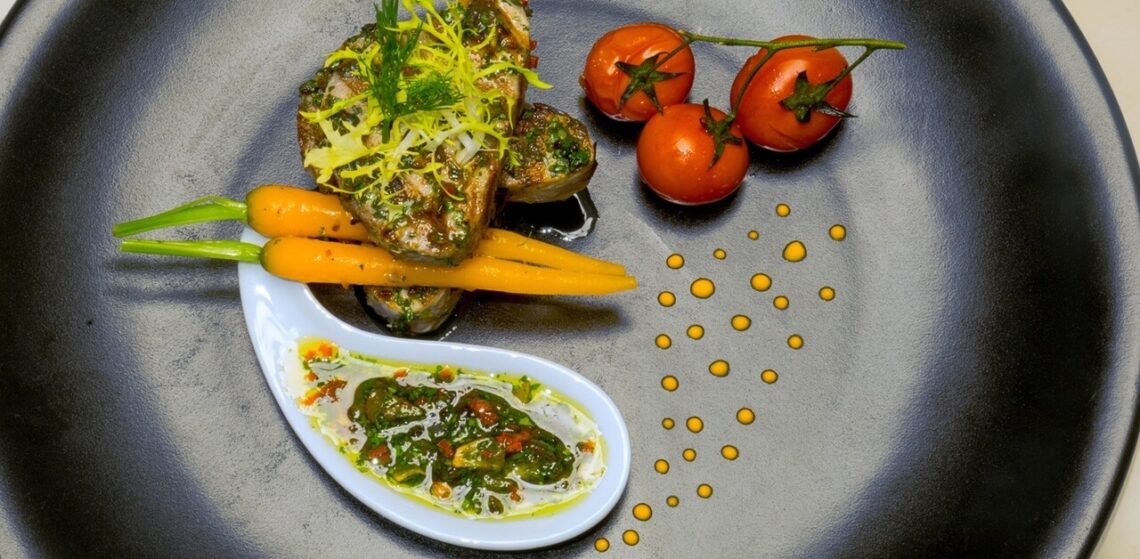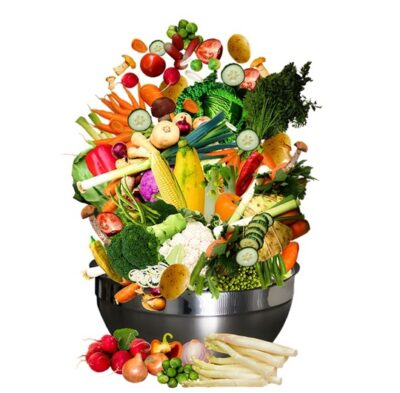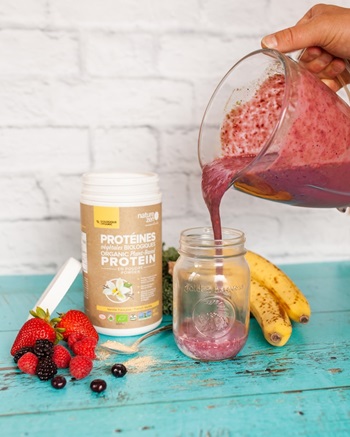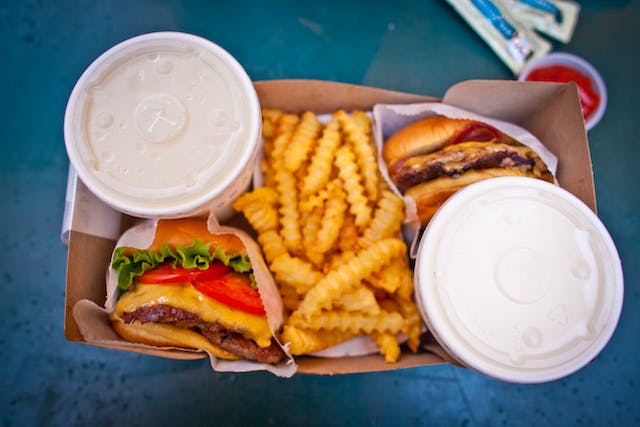For health-conscious individuals observing Ramadan, selecting the right foods for Suhoor, the pre-fast meal, is crucial. This guide focuses on nutritious options that provide sustained energy and promote overall well-being during the fasting period.
Understanding which foods to include and which to avoid can significantly impact the effectiveness and comfort of the fast. The aim is to ensure that the body receives the necessary nutrients to stay energized and healthy throughout the day.
Your Body’s Nutritional Requirements
Before examining the specifics of what to eat before fasting during Ramadan, it’s crucial to understand your nutritional requirements during this holy month. Fasting from dawn until sunset can last up to 15 hours or more, depending on your geographical location and the time of year.
This extended fasting period places unique demands on your body.
The Need for Sustained Energy
Your pre-dawn meal should provide sustained energy to keep you feeling full and energized throughout the day. Complex carbohydrates are your best friends in this regard, as they release energy slowly, ensuring you stay powered up during your fast.
Staying Hydrated
Dehydration is a common concern during Ramadan, especially in hot climates. Replenishing your body’s fluid levels during Suhoor is essential. Opt for hydrating foods and beverages that keep you well-hydrated until sunset.
Maintaining Nutrient Balance
A balanced meal is essential to ensure you receive all the necessary nutrients. Incorporate proteins, healthy fats, vitamins, and minerals into your Suhoor to support your overall well-being.
Crafting Pre-Fasting Meal (Foods for Suhoor)
Before we dive into the specific foods that can make your Suhoor both nutritious and satisfying, let’s take a moment to explore some essential elements of a balanced pre-fasting meal.
Suhoor is your morning fuel, and it’s essential to get it right to sustain energy throughout the day.
Complex Carbohydrates: The Foundation
Complex carbohydrates are your best friends during Suhoor. They provide a slow and steady release of energy, keeping you feeling full and energized.
Here are some excellent choices:
Whole Grains
Oats: Ideal for porridge or overnight oats.
Brown Rice: Can be paired with vegetables or lean protein.
Whole Wheat Bread: Great for sandwiches or toast.
Protein-Packed Options
Protein helps in sustaining energy levels and maintaining muscle health.
Eggs: Versatile and can be prepared in various ways – boiled, scrambled, or as an omelet.
Lean Meats: Such as chicken breast or turkey, which can be grilled or baked.
Legumes: Chickpeas and lentils are excellent for salads, soups, or stews.
Healthy Fats for Satiety
Healthy fats are vital for long-lasting satiety and preventing cravings.
Avocados: Can be eaten alone, in salads, or as guacamole.
Nuts: Almonds, walnuts, and pistachios are good options for a quick snack.
Seeds: Such as chia seeds or flaxseeds, great for adding to yogurt or smoothies.
Fiber-Rich Fruits and Vegetables
These provide essential vitamins, minerals, and fiber.
Fruits
Berries: Strawberries, blueberries, and raspberries are low in sugar.
Apples: Provide sustained energy and are high in fiber.
Oranges: Rich in vitamin C and hydration, but consume in moderation due to sugar content.
Vegetables
Leafy Greens: Spinach, kale, and lettuce are excellent for salads.
Cruciferous Vegetables: Broccoli and cauliflower are high in fiber and nutrients.
Bell Peppers: Add color and crunch to dishes, and are high in vitamins.
By incorporating these foods into your Suhoor, you can ensure a balanced intake of essential nutrients, keeping you energized and healthy throughout your fasting hours.
Foods to Avoid in Suhoor
While it’s essential to know what to eat before fasting during Ramadan, it’s equally vital to understand what to avoid to ensure a comfortable and spiritually fulfilling fast.
Steer Clear of Sugary Foods
Avoid foods and drinks that are high in sugar or contain refined carbohydrates. These can lead to a rapid spike in blood sugar levels, followed by a crash, leaving you feeling fatigued and hungry.
Limit Caffeine Intake
Caffeinated beverages like coffee and tea can be dehydrating. Limit your consumption during Suhoor to prevent excessive fluid loss during the day. Opt for herbal teas or decaffeinated options if you need a morning beverage.
Watch the Salt
Excessive salt intake can increase thirst and lead to dehydration. Be mindful of salty foods like processed meats, pickles, and heavily seasoned dishes. Opt for lower-sodium alternatives when possible.
Staying Healthy and Hydrated During Fasting
Hydration Strategies
Staying well-hydrated during fasting hours is crucial. Consider drinking plenty of water between Iftar (the evening meal) and Suhoor to maintain adequate hydration. Coconut water and electrolyte-rich drinks can also help replenish lost fluids.
Balanced Iftar Meals
When breaking your fast at Iftar, aim for balanced meals that include protein, carbohydrates, and vegetables. This will help stabilize your blood sugar levels and prevent overeating.
Light Physical Activity
Engaging in light physical activity, such as walking, after Iftar can help with digestion and boost your overall well-being. However, avoid strenuous exercise during fasting hours, as it can lead to dehydration.
Ensuring Smooth and Healthy Ramadan Fasting
Fasting during Ramadan can be a deeply rewarding experience when approached with mindfulness and proper preparation.
By understanding your nutritional needs, crafting a balanced Suhoor meal, and avoiding foods that can disrupt your fast, you can embark on a successful and spiritually enriching fasting journey.
Additionally, staying hydrated, enjoying balanced Iftar meals, and incorporating light physical activity can further enhance your overall well-being during this sacred month of reflection and devotion.
Understanding the Significance of Suhoor
Suhoor, the pre-dawn meal before fasting during Ramadan, holds a special place in the hearts of millions of Muslims worldwide. It’s a time of reflection, prayer, and preparation for the long day of fasting ahead. This meal, consumed in the early hours before dawn, is not just about sustenance; it’s a spiritual and physical endeavor.
Having observed Ramadan fasting for numerous years, it becomes evident that Suhoor plays a pivotal role in ensuring a successful fast. Through personal experiences, it’s become clear that the right food choices can make a significant difference in how one feels throughout the day.
The wisdom of selecting foods that provide sustained energy, keep you hydrated, and maintain a balance of essential nutrients becomes apparent as you embrace the fasting routine.
Remember that these recommendations are not just theoretical; they are based on the practical wisdom gained from years of observing and adapting to the challenges and rewards of fasting.
FAQs about Pre-Fasting Ramadan Foods
1. What is the meal before fasting in Ramadan?
The meal before fasting in Ramadan is called “Suhoor” or “Sehri.” It is a pre-dawn meal that Muslims consume before beginning their fast for the day.
2. What should I eat before starting fasting?
It’s recommended to eat a balanced meal for Suhoor that includes complex carbohydrates, protein, and fiber. Common options include oatmeal, whole-grain bread, yogurt, fruits, and plenty of water.
3. How do I prepare my body for Ramadan fasting?
To prepare your body for Ramadan fasting, gradually adjust your meal times in the weeks leading up to Ramadan, hydrate well during non-fasting hours, and ensure you get enough sleep and rest.
4. What not to eat before a fast?
It’s advisable to avoid heavy, fried, and overly spicy foods before fasting. Also, avoid excessive caffeine and sugary foods, as they can lead to dehydration and energy crashes during the day.
References and More Resources:
- https://www.myplate.gov/eat-healthy/protein-foods
- https://www.nutrition.gov/topics/basic-nutrition/healthy-eating
- https://www.ncbi.nlm.nih.gov/pmc/articles/PMC7468808/












